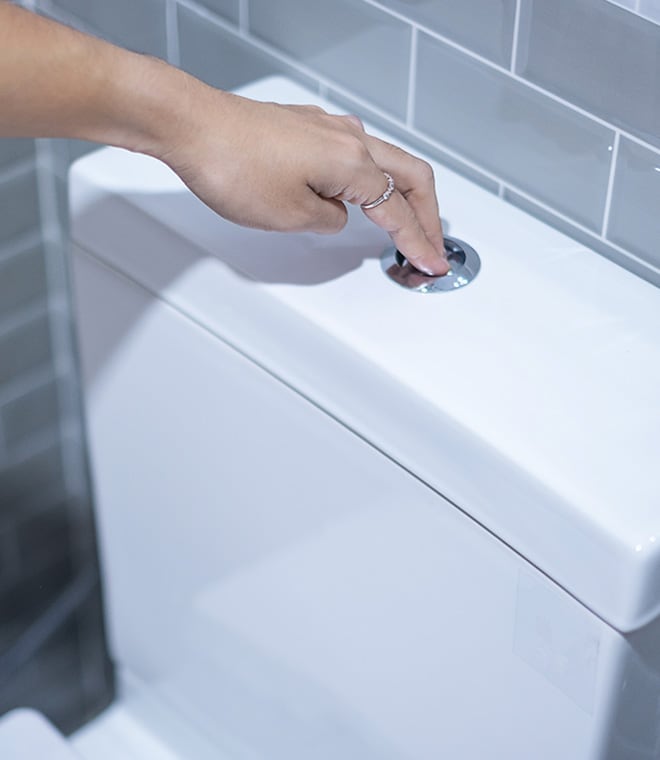Health
UTI FAQs: Important facts on urinary tract infections
By Ruben J. Rucoba, MD Jan 28, 2025 • 10 min
Urinary tract infections (UTIs) are a common problem for women, although they can occur in men as well. During their lifetime, about half of all women will develop a UTI. It’s far more rare for men, especially those under 50, to develop one. A UTI is an infection anywhere along the urinary tract, which includes the urethra, bladder, ureters and kidneys. The most common type of UTIs are bladder infections, which are often easily treated. However, more complicated or severe UTIs can affect the kidneys, which can be dangerous and even life-threatening. Here are answers to some frequently asked questions regarding UTIs.
Can a UTI cause back pain?
Yes, a UTI can cause back pain, often on just one side. Back pain is more common when the infection is in the kidneys, a condition known as pyelonephritis. Most UTIs start in the bladder but some then progress upward to the kidney. Kidney infections are serious and often require taking antibiotics for a longer period of time than you would for bladder infections.
Can a UTI cause a fever?
Yes, a UTI can cause a fever. This is more common when the UTI has progressed to the kidneys. If you have symptoms of a UTI and a high fever, you should seek medical attention immediately.
Can a UTI cause nausea?
Yes, a UTI can cause nausea. However, this symptom is more common with a kidney infection than it is with a UTI in a lower section of the urinary tract, such as the urethra.
Can a UTI cause stomach pain?
Yes, a UTI can cause pain in the abdomen or belly. This is a fairly common symptom of UTIs, even in simple bladder infections. The lining of the bladder and urethra become irritated when infected, and this irritation can cause pain in the lower abdomen, pelvic area and lower back.
Can a UTI make you tired?
Tiredness or fatigue is not a common symptom of a UTI. If your fatigue or tiredness is significant, you should discuss the issue with your healthcare provider, as it may be a sign of a UTI that is now affecting the kidneys, or another condition or illness.
Can a UTI cause a headache?
Headache is not a common symptom of a UTI. If you have a severe, recurrent or long-lasting headache, you should seek medical attention.
Are UTIs painful?
UTIs can be painful in some cases. A UTI usually causes burning or painful urination, and a strong urge to urinate even if your bladder is empty. UTIs can also cause pain in the abdomen, pelvis and lower back.
Are UTIs contagious?
No, UTIs are not contagious. UTIs occur when bacteria (from stool, the genitals, the skin or other parts of the body) enter the urinary tract. You cannot give a UTI to someone else.
Can stress cause a UTI?
No, stress cannot cause a UTI. Bacteria are responsible for UTIs. However, stress may play a role in bladder dysfunction, which may lead to a UTI. Risk for UTIs may increase as a result of stress-related behavioral changes, such as waiting to urinate or urinary retention.
Can amoxicillin cause a UTI?
No, amoxicillin cannot cause a UTI. UTIs are caused by bacteria, and antibiotics kill bacteria and treat UTIs.
Can antibiotics cause a UTI?
Oral antibiotics may cause changes to bacteria normally found in the vagina. Changes in vaginal bacteria may increase the risk of getting frequent UTIs (also known as recurrent UTIs).
How are UTIs diagnosed?
Healthcare providers typically diagnose a UTI based on your symptoms, a physical exam and an analysis of your urine, called a urinalysis. This test can be done in the office by using a urine sample to look for signs of infection, including white blood cells, red blood cells and other markers. A urine culture may be sent to the lab to identify the specific bacteria causing the UTI to determine which antibiotics will be most effective in treating your UTI.
If you have recurring UTIs, other tests may be done to determine the cause. Tests include imaging (with an ultrasound or other techniques) or a cystoscopy (inserting a long, thin tube with a camera attached to see inside your urethra and bladder). These tests are not used to diagnose a UTI but rather to determine if there is an underlying cause for frequent UTIs.
How do women get UTIs?
It's very common for women to get UTIs. In fact, women get UTIs up to 30 times more often than men do. There are a few reasons for this:
- The urethral opening in women is close to the vagina and anus, two areas that have UTI-causing bacteria.
- The urethra is shorter in women, so bacteria have less distance to travel from the urethral opening to the bladder.
- Some hormonal changes can put women at higher risk for UTIs, especially changes seen during menopause and pregnancy.
- Pregnancy increases the risk of UTIs from week 6 through week 24 because the fetus sits directly on top of the bladder, which can block the drainage of urine from the bladder.
- Spermicides can increase the risk of UTIs in women, as they kill the good bacteria in the vagina that may protect against UTIs.
Can a male get a UTI?
Yes, males can get UTIs, though it is very uncommon at any age. The symptoms are the same as for women, but an additional complication men face is prostatitis, an infection of the prostate gland. If you are a man and are having symptoms of a UTI, contact your healthcare provider. Symptoms of a UTI include painful or burning urination, frequent urge to urinate, pain in your pelvic area or lower abdomen, urine that appears cloudy, passing frequent but small amounts of urine, or passing strong-smelling urine.
Can a man get a UTI from a woman?
No, a man cannot get a UTI from a woman. UTIs are not contagious.
How can a man get a UTI?
Similar to what occurs in women, a man can get a UTI when bacteria from his skin around the urethral opening or from his anus enter the urethra and travel up to the bladder. However, because the urethra is longer in men, bacteria that make it all the way to the bladder are particularly resilient, so healthcare providers often treat UTIs in men with different antibiotics than in women, and usually for longer periods of time.
It's uncommon for men under the age of 50 to get UTIs. There are several factors that increase the risk of UTIs in men:
- An enlarged prostate
- Anal intercourse
- Being uncircumcised
- Previous surgery or procedure involving the urethra, bladder, prostate or kidneys
- Not emptying the bladder completely
- Obstruction of the urinary tract (kidney stone, urethral stricture or other anatomic problem)
- Use of a catheter, which is a plastic tube inserted in the urethra either temporarily (such as when having a surgery) or more permanently to drain the bladder
Is there any way to prevent a UTI?
There are no guaranteed ways to prevent UTIs, but there are steps you can take to decrease your risk, including:
- Drinking a lot of water. This helps flush out the bacteria.
- Not holding your urine. Urinating frequently gives bacteria less time to grow in the bladder. Don't go longer than three or four hours without urinating.
- Urinating before and after sexual activity.
- Avoiding douches and feminine hygiene sprays.
- Avoiding bubble baths.
- Wiping from front to back.
- Cleaning the anus and (for women) the outer lips of your genitals every day.
- Wearing underwear with a cotton crotch, and limiting your time wearing tight-fitting pants, as they can trap moisture.
- Changing out of wet bathing suits and sweaty workout clothes as quickly as possible.
- Avoiding using a diaphragm or spermicides as birth control if you get UTIs often. Talk to your healthcare provider about other birth control options that may be better for you.
UTIs are very common for women, but they can also occur in men. If you have symptoms of a UTI, do not attempt home treatment. Seek medical attention to get diagnosed and treated appropriately.
Updated by Rebeca Thomas RN, BSN, January 2025.
Sources:
- https://www.mayoclinic.org/diseases-conditions/urinary-tract-infection/symptoms-causes/syc-20353447
- https://www.urologyhealth.org/urology-a-z/u/urinary-tract-infections-in-adults
- https://www.niddk.nih.gov/health-information/urologic-diseases/bladder-infection-uti-in-adults/definition-facts
- https://www.cdc.gov/uti/about/index.html
- Sanford, Melissa T.; Rodriguez, Larissa V.. The role of environmental stress on lower urinary tract symptoms. Current Opinion in Urology 27(3):p 268-273, May 2017. | DOI: 10.1097/MOU.0000000000000379
- https://familydoctor.org/condition/urinary-tract-infections/
- https://www.mayoclinic.org/diseases-conditions/urinary-tract-infection/diagnosis-treatment/drc-20353453
- https://www.womenshealth.gov/a-z-topics/urinary-tract-infections
- https://americanpregnancy.org/healthy-pregnancy/pregnancy-complications/urinary-tract-infections-during-pregnancy/
- https://www.urologyhealth.org/urology-a-z/p/prostatitis-(infection-of-the-prostate)
- https://www.health.harvard.edu/a_to_z/urinary-tract-infection-in-men-a-to-z
- Mingin GC, Peterson A, Erickson CS, Nelson MT, Vizzard MA. Social stress induces changes in urinary bladder function, bladder NGF content, and generalized bladder inflammation in mice. Am J Physiol Regul Integr Comp Physiol. 2014;307(7):R893-R900. doi:10.1152/ajpregu.00500.2013




